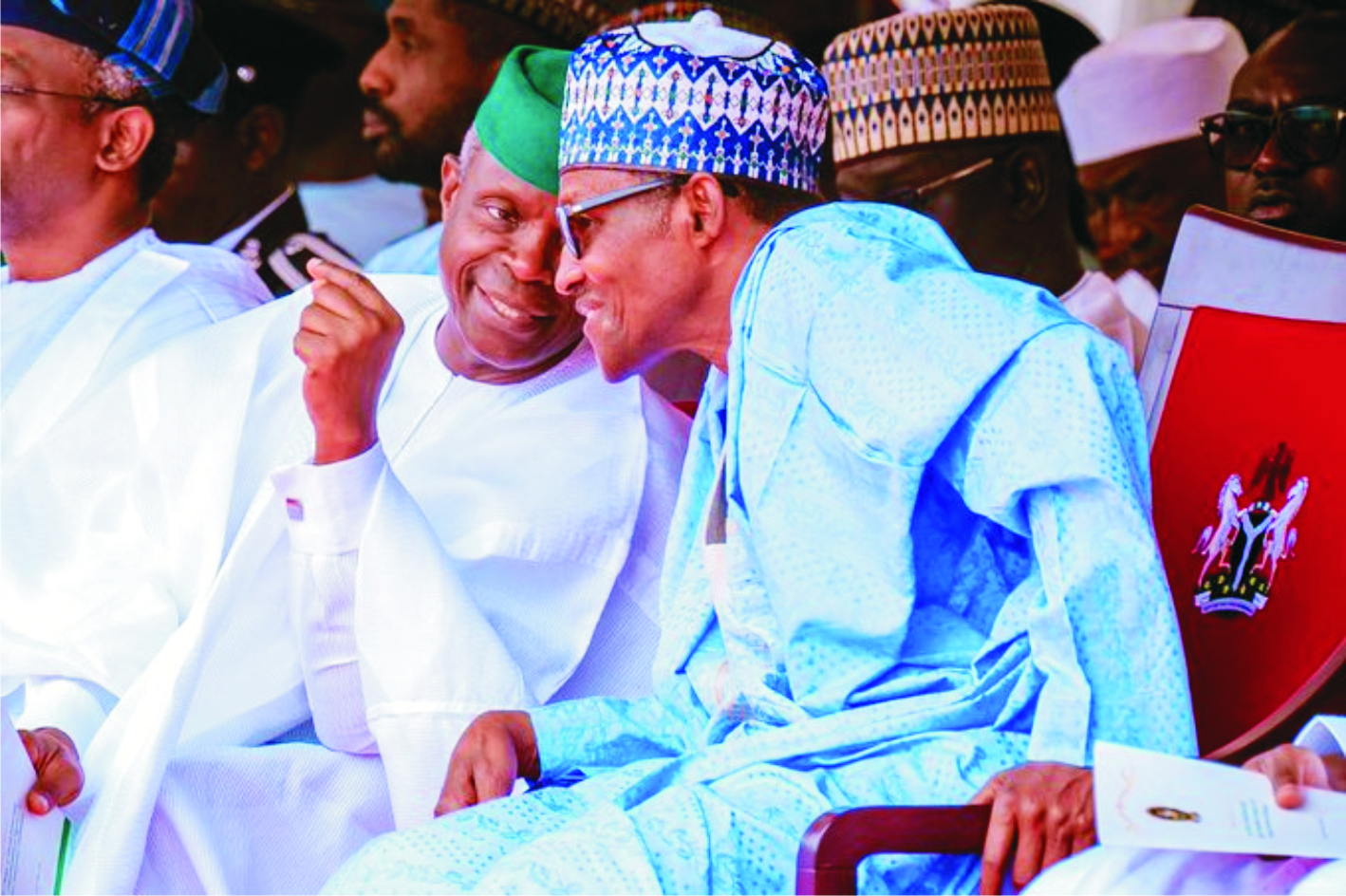Business
FG Earmarks N3.12trn For Debt Service In 2021

The Federal Government says it remains committed to meeting the nation’s debt obligations as N3.12trillion is earmarked for debt service in 2021 budget proposal.
President Muhammadu Buhari made this known when he presented the 2021 budget proposal of N13.08trillion to the National Assembly in Abuja, yesterday.
According to him, the amount represents an increase of N445.57 billion from N2.68 trillion in 2020.
“We remain committed to meeting our debt service obligations.
“Hence, we have provisioned N3.12 trillion for this in 2021, representing an increase of N445.57 billion from N2.68 trillion in 2020.
“A total of N2.183 trillion has been set aside to service domestic debts while N940.89 billion has been provided for foreign debt service.
“N220 billion is provided for transfers to the Sinking Fund to pay off maturing bonds issued to local contractors and creditors.’’
On the breakdown of the budget, Buhari said N3.85trillion had been earmarked for Capital Expenditure.
He said: “An aggregate sum of N3.85 trillion is expected to be available for capital projects in 2021”.
These include N1.80 trillion for MDAs’ capital expenditure; N745 billion for Capital Supplementation; N355 billion for Grants and Aid-funded projects and N20 billion for the Family Homes Fund.
Others are N25 billion for the Nigeria Youth Investment fund; N336 billion for 60 Government Owned Enterprises; N247 billion for capital component of Statutory Transfers; and N710 billion for projects funded by Multi-lateral and Bi-lateral loans.
According to the president, the 2021 capital budget is N1.15 trillion higher than the 2020 provision of N2.69 trillion.
He noted that, at 29 percent of aggregate expenditure, the provision moves closer to his administration’s policy target of 30 percent.
Buhari stated that the capital expenditure in 2021 remains focused on the completion of as many ongoing projects as possible, rather than the commencement of new ones.
He further disclosed that key capital spending allocations in the 2021 Budget include: Power: N198 billion (inclusive of N150 billion for the Power Sector Recovery Plan); Works and Housing: N404 billion; Transportation: N256 billion; Defence: N121 billion; Agriculture and Rural Development: N110 billion; Water Resources: N153 billion and Industry, Trade and Investment: N51 billion.
Others are: Education: N127 billion; Universal Basic Education Commission: N70 billion; Health: N132 billion; Zonal Intervention Projects: N100 billion; and Niger Delta Development Commission: N64 billion.’’
The president said his administration had made efforts to ensure equity in the distribution of projects and programmes in the proposed budget.
Business
Kenyan Runners Dominate Berlin Marathons
Kenya made it a clean sweep at the Berlin Marathon with Sabastian Sawe winning the men’s race and Rosemary Wanjiru triumphing in the women’s.
Sawe finished in two hours, two minutes and 16 seconds to make it three wins in his first three marathons.
The 30-year-old, who was victorious at this year’s London Marathon, set a sizzling pace as he left the field behind and ran much of the race surrounded only by his pacesetters.
Japan’s Akasaki Akira came second after a powerful latter half of the race, finishing almost four minutes behind Sawe, while Ethiopia’s Chimdessa Debele followed in third.
“I did my best and I am happy for this performance,” said Sawe.
“I am so happy for this year. I felt well but you cannot change the weather. Next year will be better.”
Sawe had Kelvin Kiptum’s 2023 world record of 2:00:35 in his sights when he reached halfway in 1:00:12, but faded towards the end.
In the women’s race, Wanjiru sped away from the lead pack after 25 kilometers before finishing in 2:21:05.
Ethiopia’s Dera Dida followed three seconds behind Wanjiru, with Azmera Gebru, also of Ethiopia, coming third in 2:21:29.
Wanjiru’s time was 12 minutes slower than compatriot Ruth Chepng’etich’s world record of 2:09:56, which she set in Chicago in 2024.
Business
NIS Ends Decentralised Passport Production After 62 Years
Business
FG To Roll Out Digital Public Infrastructure, Data Exchange, Next Year
-
Maritime3 days ago
Minister Tasks Academy On Thorough-Bred Professionals
-
Maritime3 days ago
Customs Cautions On Delayed Clearance, Says Consignees May Lose Cargo
-
Maritime3 days ago
Lagos Ready For International Boat Race–LASWA
-
Maritime3 days ago
NCS Sensitises Stakeholders On Automated Overtime Cargo Clearance System
-
Maritime3 days ago
Shoprite Nigeria Gets New Funding to Boost Growth, Retail Turnaround
-
Politics3 days ago
I Would Have Gotten Third Term If I Wanted – Obasanjo
-
Sports3 days ago
Bournemouth, Newcastle Share Points
-
Sports3 days ago
Zidane’s Son Switches Allegiance To Algeria

